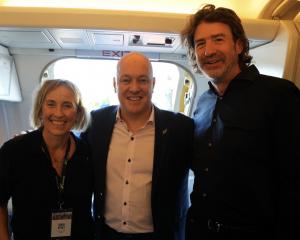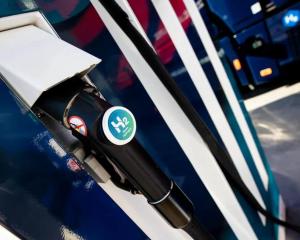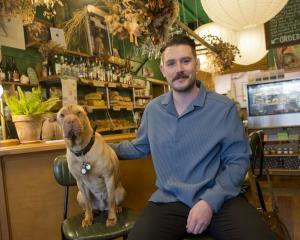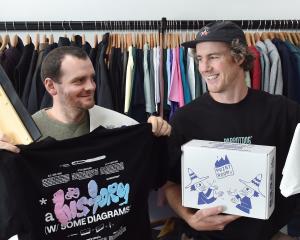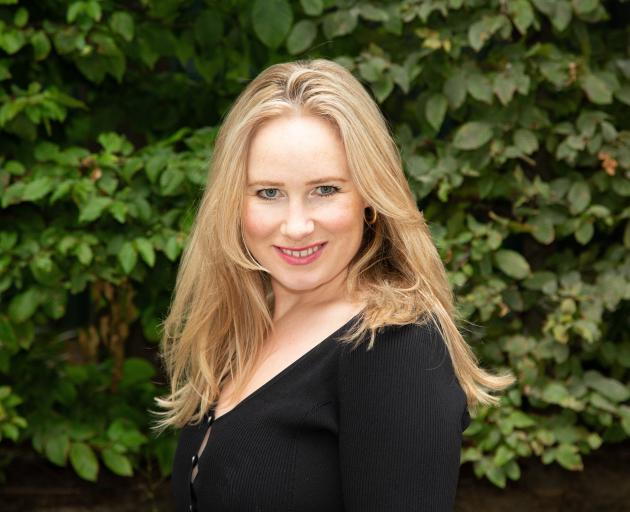
"It's actually just good clean fun."
That’s how Kiwi Water Park co-owner Emily Rutherford describes the inflatable attraction on the shores of Lake Dunstan which has drawn thousands of visitors over the past three summers.
In a world where so much screen-time was consumed, it was fun to see families coming together "having a laugh [and] being a bit goofy", escaping from day-to-day seriousness, she said.
The New Zealand Entrepreneur of the Year awards programme, launched in 2001, honours entrepreneurs whose ingenuity and perseverance have created and sustained successful, growing business ventures.
For Ms Rutherford, the acknowledgement was exciting; recognition for a business which has enjoyed virtually instantaneous success since opening in December 2020.
But it had not all been a splash in the park and she feared for other budding entrepreneurs, saying it was very difficult to start a new business, particularly in outdoor activities, without previous experience.
She was fortunate her parents ran a business in Queenstown for 30 years and yet she still she had to "fight so much", she said.
When it came to the idea of a water park, Ms Rutherford had seen videos online of similar attractions overseas.
She felt it was something that was missing in New Zealand, particularly the South Island.
Having grown up in Queenstown and having loved being in the lake, coupled with dance and trampoline, she thought it would be a fun addition to the Queenstown-Wanaka-Cromwell region. Aside from seven years in London, Ms Rutherford has spent her life in Otago, including tertiary studies at the University of Otago.
While there were many activities already in the area, many were of the "do it once, tick it off" variety, whereas she believed the water park would be a repeat attraction.
She spoke to other water park owners, particularly in Canada, where the culture was "pretty similar" to New Zealand and decided if they were popular there, there was no reason why they would not be here.
"I just had belief — I thought it would be popular. There’s no other way to describe it," she said.
But it was also the middle of a global pandemic — "everything was shutting down, everyone was getting rid of staff" — and some believed such activities were for international tourists, of which there were not any.
Ms Rutherford firmly believed the attraction would draw the domestic market, particularly within Otago, Southland and Canterbury, and hopefully also international tourists once the borders reopened.
For so long, operators had been focused on the international market and those do it once activities; what she envisaged was people visiting the park multiple times each summer, she said.
Opening a new business amid so much negativity, with articles daily about various companies shutting down or only having skeleton staff, was a novelty, she believed.
People wanted to do something new, they were unable to leave the country to holiday on the likes of the Gold Coast, and it also attracted widespread media attention.
"I do think in a way opening during Covid, risky as it was, did pay off," she said.
And because she came from the area, she understood about having something that fitted what local people would come to.
"A lot of people come into the region and have ideas of tourism businesses and don’t understand the locals. I believe you’ve got to get locals on board," she said.
As the park prepared for its first opening, she thought it might attract 100 people a day, and those numbers might slowly build.
On the second day, 600 people turned up and they were forced to turn some away.
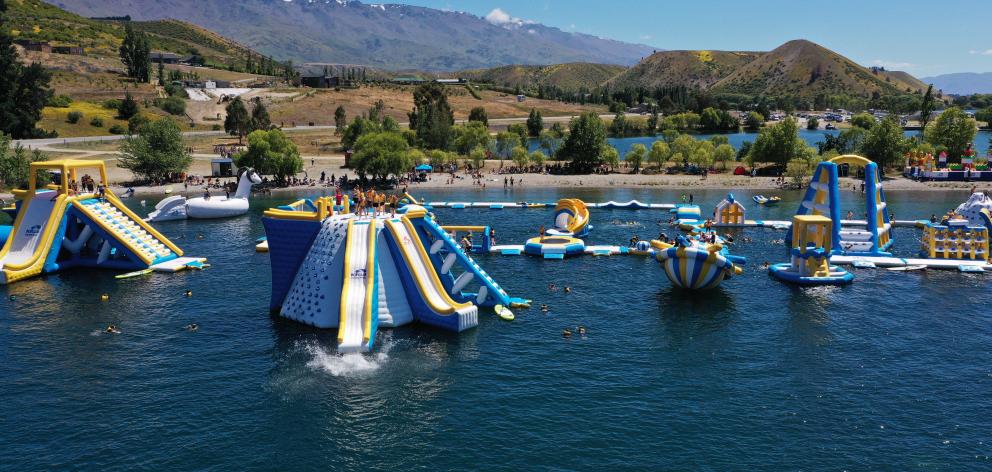
But she said it was almost like it had been a victim of its own success and the park’s future was up in the air last year due to a six-month battle between Land Information New Zealand, Waka Kotahi NZ Transport Agency and the Central Otago District Council over road access, which was eventually resolved before the season began.
There had also been a move 350m down the lake towards Cromwell to provide more shelter.
Ms Rutherford said it had been like "working backwards ... to fight things out".
She believed a lot of young people were frustrated they could not get ahead in New Zealand, adding that was not political, but she believed it was an issue.
Her advice? "Keep going and trying ... I don’t have a miracle answer because it’s difficult.
"I’ve had to really fight; it’s not been handed to me."
She cited the likes of bungy-jump operator AJ Hackett whose business was "throwing people off a bridge".
If bungy jumping did not already exist, then there was "no way"consent would be granted now, she believed.
"A lot of businesses now around that area wouldn’t exist if they were trying to start now," she said.
It was a tricky one and not down to individuals but "just purely a societal thing which I don’t really know what the best answer is".
Rules were required — "because you don’t want something to go wrong" — but new activity should not be stifled either.
"I don’t have a perfect solution," she said.
One of her biggest issues had been getting hold of people and the park’s busiest time of the year was when many were on holiday so officials could only come for site visits on weekdays in February.
"Our busiest time is from Boxing Day to January 15-16 which is absolute mayhem. It’s been difficult to try and explain what we want to do and how to do it and make it as safe as possible. It’s been definitely very difficult dealing with so many different agencies ... when they are never around."
Health and safety had been a "huge" learning curve for Ms Rutherford.
While she had plenty of prior experience around marketing, social media and events, there had not been so much about health and safety and, for her, the most important thing at the park was safety.
Something that had shocked her among the many school groups that visited was the number of children that could not swim properly and it was concerning to see how many struggled with both swimming and fitness.
Extra lifeguards were always on duty for school visits and it was rewarding to see those who were initially less confident in the water feel they had achieved something.
On December 1, the park will open for the 2023-24 season with new features, including a giant tower.
The intention was to keep it fairly similar to what it was now, just adding some new features each year to keep it fresh.
"It’s been successful for three seasons, I don’t think people want us to change it too much."
She was also working on "multiple" other projects including some land-based adventure activities which were yet to be announced.


